What Are Chicken Necks And Their Nutritional Value
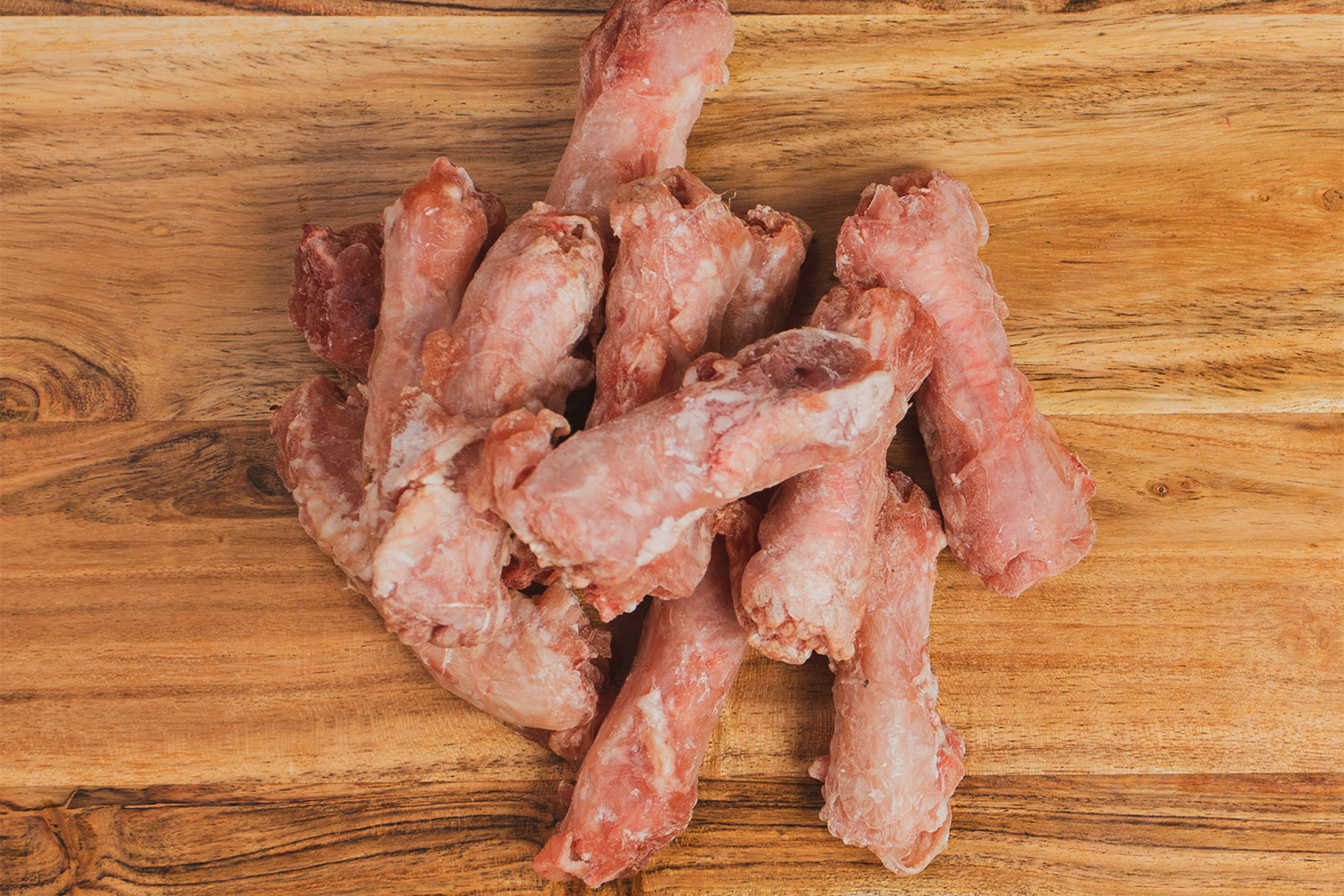
Chicken necks are the bony parts of the chicken that are commonly fed to dogs as a treat or part of a raw diet. They are rich in essential nutrients such as protein, calcium, and phosphorus. These nutrients are important for maintaining strong bones, teeth, and joints in dogs. Chicken necks also provide a good source of glucosamine and chondroitin, which can help support joint health and mobility. However, it is important to feed chicken necks in moderation and monitor your dog while they are chewing to prevent any choking hazards.
What Are Chicken Necks And Why Are They Popular For Dogs
Chicken necks are the bony parts of the chicken that are commonly fed to dogs as a treat or as part of a raw diet. They have gained popularity among dog owners due to their nutritional value and potential benefits for dogs. Chicken necks are rich in essential nutrients such as protein, calcium, and phosphorus, which are important for maintaining strong bones, teeth, and joints in dogs. They also provide a good source of glucosamine and chondroitin, which can support joint health and mobility. Many dog owners appreciate chicken necks as a natural and healthy treat option for their furry friends.
Nutritional Content Of Chicken Necks And Potential Benefits
Chicken necks are packed with essential nutrients that can benefit dogs. They are high in protein, providing the building blocks for healthy muscles and tissues. Additionally, chicken necks are a rich source of calcium and phosphorus, which contribute to strong bones and teeth. These bony treats also contain glucosamine and chondroitin, known for their joint-supporting properties. Dogs that consume chicken necks may experience improved bone and joint health, promoting better mobility and overall well-being. Their natural composition and nutritional profile make chicken necks a favorable option for dog owners seeking to provide a healthy and beneficial treat for their furry friends.
Risks And Safety Concerns Of Feeding Chicken Necks To Dogs
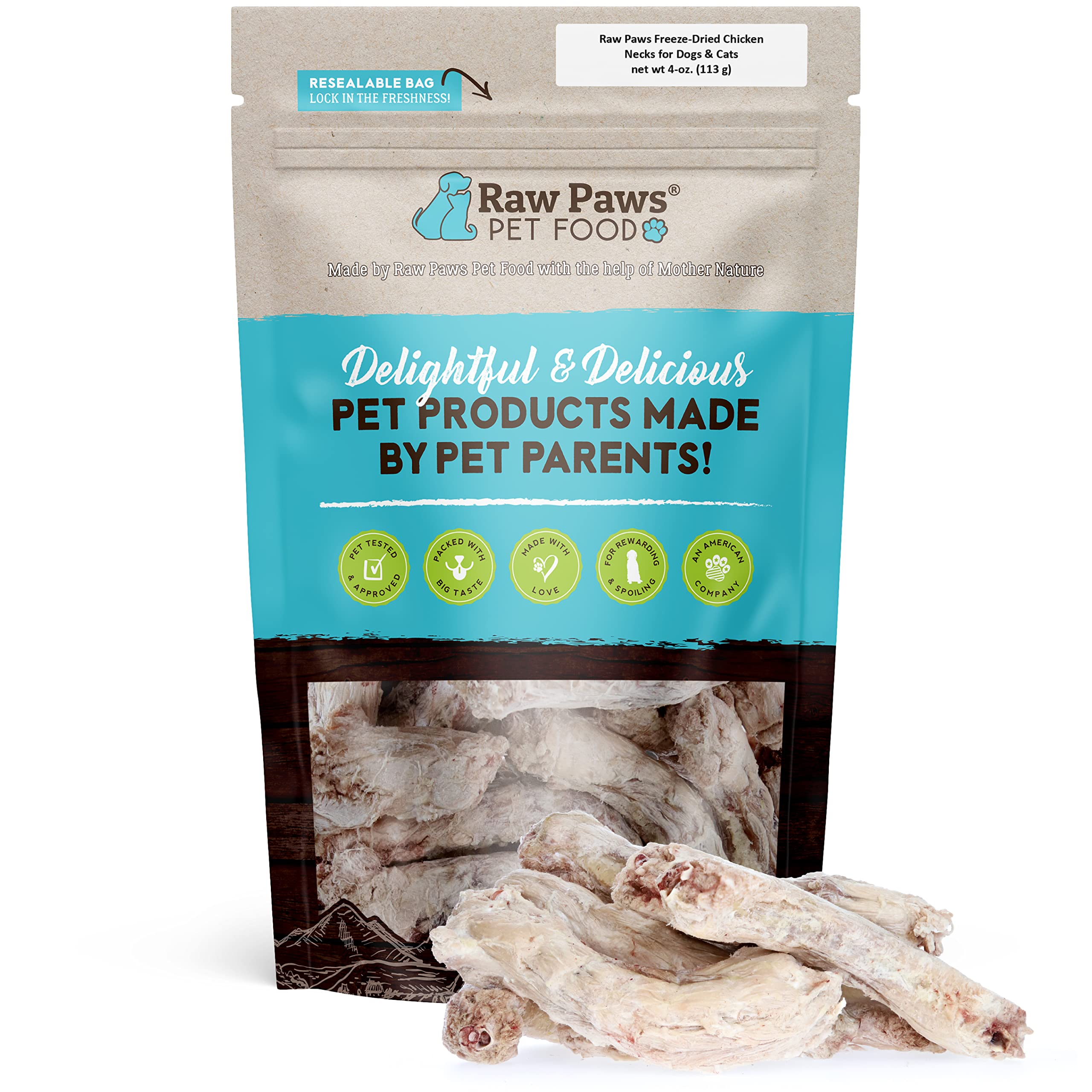
Feeding chicken necks to dogs can pose some risks and safety concerns. One major concern is the potential for choking, as the small size and shape of chicken necks can easily get lodged in a dog’s throat. Additionally, the high bone-to-meat ratio can lead to constipation in some dogs. Another risk is the potential for bacterial contamination, as raw chicken can harbor harmful bacteria like Salmonella or Campylobacter. It is important to follow safe handling practices and ensure proper hygiene to minimize the risk of foodborne illnesses. Overall, cautious supervision and mindful feeding practices are crucial when offering chicken necks to dogs.
Potential Risks And Hazards Associated With Feeding Chicken Necks
Feeding chicken necks to dogs can pose several risks and hazards. The small size and shape of chicken necks can increase the risk of choking, especially in medium to larger-sized dogs. Dogs may also be prone to eating raw necks quickly without proper chewing, further increasing the risk of choking. The high bone-to-meat ratio in chicken necks can lead to constipation in some dogs. Additionally, the raw chicken can be contaminated with harmful bacteria like Salmonella or Campylobacter, posing a risk of foodborne illnesses to both dogs and humans. Careful supervision and adherence to safe handling practices are essential to minimize these risks.
Safe Practices And Guidelines For Giving Chicken Necks To Dogs
When feeding chicken necks to dogs, it is important to follow safe practices and guidelines to ensure their well-being. Here are a few key recommendations:
- Supervision: Always supervise your dog while they are eating chicken necks to prevent choking or any other mishaps.
- Size: Consider the size of your dog when selecting chicken necks. For larger dogs, opt for larger necks to reduce the risk of choking.
- Proper chewing: Encourage your dog to chew thoroughly before swallowing to prevent choking. If your dog tends to gulp their food, it may be best to avoid feeding them chicken necks.
- Raw feeding precautions: If you choose to feed raw chicken necks, follow strict hygienic practices to minimize the risk of bacterial contamination. Wash your hands thoroughly after handling raw chicken and clean any surfaces or utensils that come into contact with it.
By following these guidelines, you can safely incorporate chicken necks into your dog’s diet.
Alternative Dog-friendly Treats
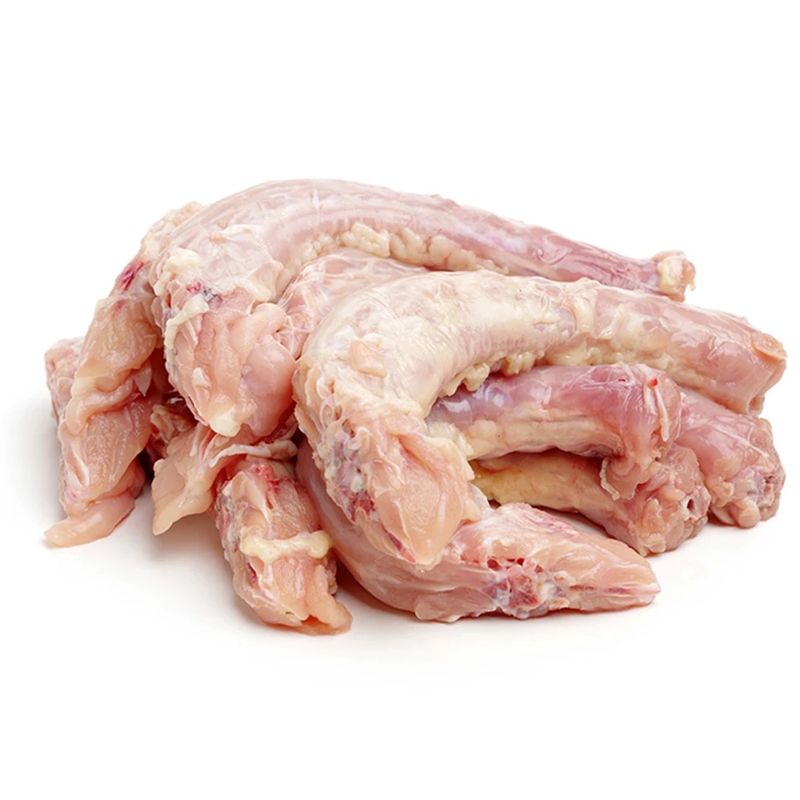
There are plenty of alternative dog-friendly treats that you can offer to your furry friend if you prefer not to feed them chicken necks. Some healthy and safe options include:
- Carrots: Low in calories and high in fiber, carrots make for a crunchy and satisfying treat for your dog while promoting dental health.
- Sweet potatoes: Rich in vitamins and minerals, sweet potatoes are a nutritious alternative to chicken necks and can be served cooked or dehydrated.
- Apples: Slice up some fresh apples (without the seeds or core) for a sweet and crunchy treat that is packed with antioxidants and dietary fiber.
- Green beans: These low-calorie treats are an excellent source of vitamins and minerals, providing a healthy snacking option for your dog.
Remember to always introduce new treats in moderation and consult with your veterinarian regarding your dog’s specific dietary needs.
Healthy And Safe Alternatives To Chicken Necks For Dogs
There are plenty of alternative dog-friendly treats that you can offer to your furry friend if you prefer not to feed them chicken necks. Some healthy and safe options include carrots, sweet potatoes, apples, and green beans. Carrots are low in calories and high in fiber, promoting dental health. Sweet potatoes are rich in vitamins and minerals and can be served cooked or dehydrated. Apples provide a sweet and crunchy treat packed with antioxidants and dietary fiber. Green beans, on the other hand, are low-calorie treats that are an excellent source of vitamins and minerals. Always introduce new treats in moderation and consult with your veterinarian regarding your dog’s specific dietary needs.
Nutritious Treats That Can Be Beneficial For Your Pet’s Health
There are plenty of alternative dog-friendly treats that you can offer to your furry friend if you prefer not to feed them chicken necks. Some healthy and safe options include carrots, sweet potatoes, apples, and green beans. Carrots are low in calories and high in fiber, promoting dental health. Sweet potatoes are rich in vitamins and minerals and can be served cooked or dehydrated. Apples provide a sweet and crunchy treat packed with antioxidants and dietary fiber. Green beans, on the other hand, are low-calorie treats that are an excellent source of vitamins and minerals. Always introduce new treats in moderation and consult with your veterinarian regarding your dog’s specific dietary needs.
Veterinary Perspectives On Chicken Necks
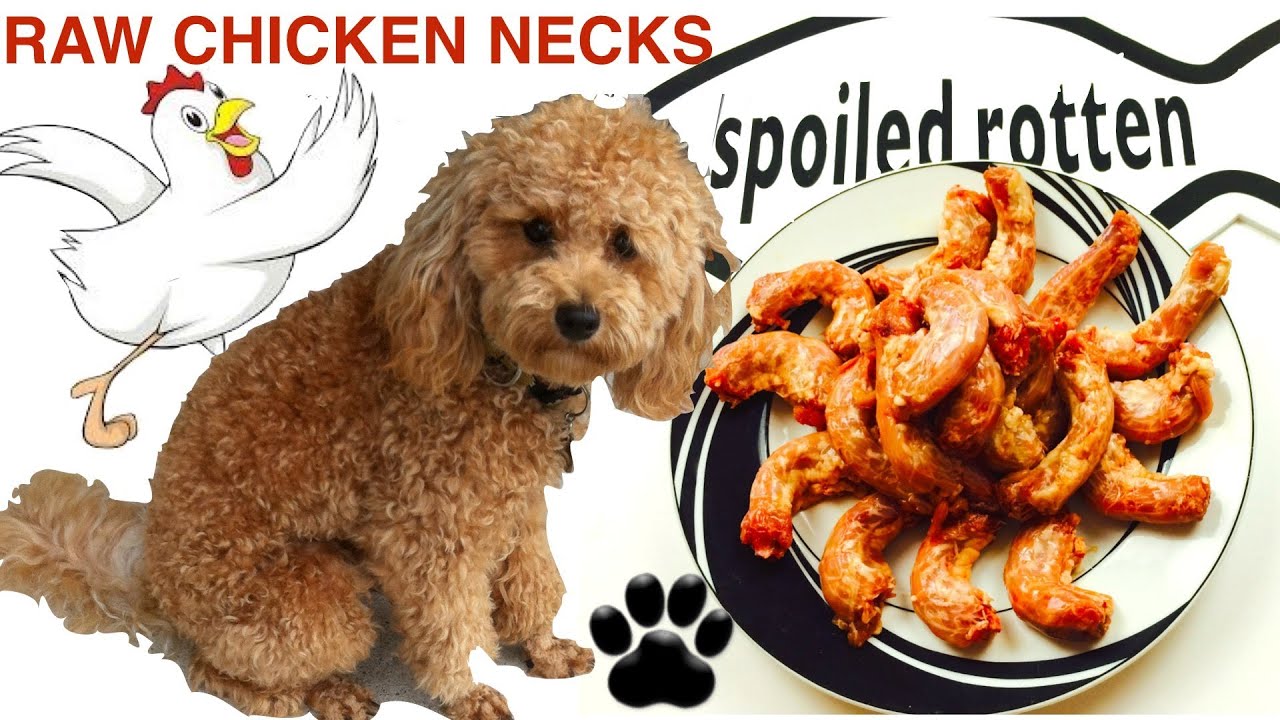
Veterinarians have varying opinions on feeding chicken necks to dogs. Some believe that cooked chicken necks can be a beneficial addition to a dog’s diet, as they provide essential nutrients and promote dental health. However, others caution against feeding chicken necks due to the potential risks of choking or injury from bone splintering. It is important to consult with your veterinarian before introducing chicken necks or any other new food into your dog’s diet. They can provide personalized advice based on your dog’s specific needs and health conditions.
Insights From Veterinarians On Feeding Chicken Necks To Dogs
Veterinarians have varying opinions on feeding chicken necks to dogs. Some believe that cooked chicken necks can be a beneficial addition to a dog’s diet, as they provide essential nutrients and promote dental health. However, others caution against feeding chicken necks due to the potential risks of choking or injury from bone splintering. It is important to consult with your veterinarian before introducing chicken necks or any other new food into your dog’s diet. They can provide personalized advice based on your dog’s specific needs and health conditions.
Professional Opinions On The Safety And Health Implications
According to veterinarians, professional opinions on the safety and health implications of feeding chicken necks to dogs can vary. Some believe that cooked chicken necks can be a beneficial addition to a dog’s diet, as they provide essential nutrients and promote dental health. However, others caution against feeding chicken necks due to the potential risks of choking or injury from bone splintering. It is crucial to consult with your veterinarian before introducing chicken necks or any other new food into your dog’s diet to ensure it aligns with their specific needs and health conditions.
Common Misconceptions About Chicken Necks For Dogs
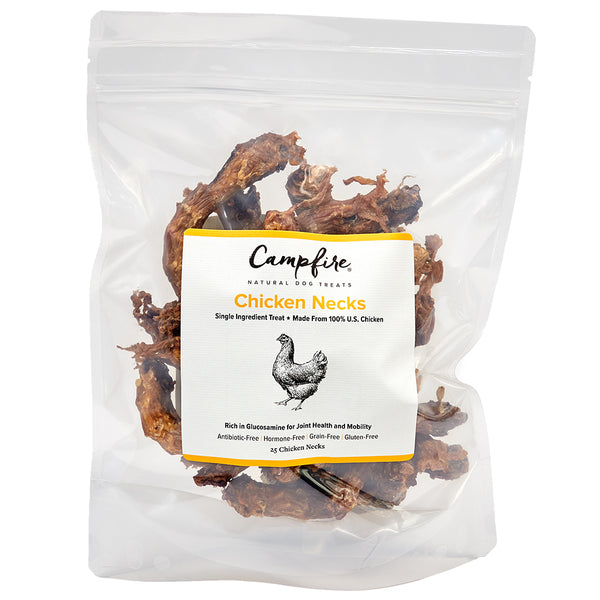
Misconceptions about feeding chicken necks to dogs are common. One prevalent belief is that chicken bones are dangerous for dogs, but this is not entirely true. Uncooked chicken necks, when properly sized, can be safe for dogs to consume. Another misconception is that cooked chicken necks are safe, but the risks of bone splintering make them a potential hazard. It is important to differentiate between cooked and uncooked chicken necks to ensure the safety of your dog. Always consult your veterinarian for accurate information and guidance on feeding chicken necks to your furry friend.
Dispelling Myths And Clarifying Misconceptions About Chicken Necks
There are several misconceptions surrounding the safety and suitability of feeding chicken necks to dogs. One common myth is that all chicken bones are dangerous for dogs, but this is not entirely accurate. Uncooked chicken necks, when properly sized, can be safe for dogs to consume. Another misconception is that cooked chicken necks are safe, but the risks of bone splintering make them a potential hazard. It is important to differentiate between cooked and uncooked chicken necks to ensure the safety of your dog. Always consult your veterinarian for accurate information and guidance on feeding chicken necks to your furry friend.
Fact-based Information On The Advantages And Disadvantages
Chicken necks for dogs have both advantages and disadvantages. On the positive side, chicken necks are a natural source of nutrients such as protein, vitamins, and minerals. They can also provide dental benefits by promoting chewing and helping to remove plaque and tartar. However, there are some drawbacks to consider. Chicken necks can be a choking hazard if not properly sized or if the dog eats too quickly. They may also pose a risk of bone splintering, especially if cooked. It is important to weigh these pros and cons and consult with a veterinarian before incorporating chicken necks into your dog’s diet.
Conclusion
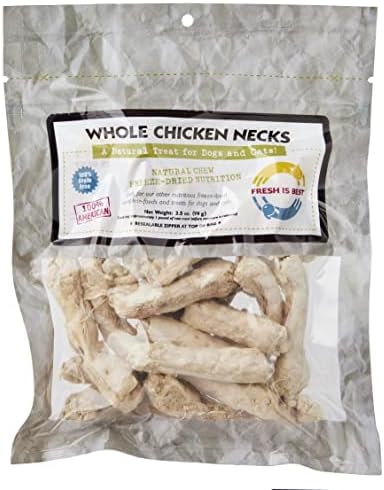
In conclusion, the safety and appropriateness of feeding chicken necks to dogs is a topic of debate among experts. While chicken necks can provide nutritional benefits and promote dental health, there are potential risks to consider, such as choking and bone splintering. It is important for dog owners to consult with a veterinarian and take precautions when feeding chicken necks to their pets. Additionally, there are alternative dog-friendly treats available that can offer similar health benefits without the associated risks. Ultimately, it is crucial to prioritize your dog’s safety and well-being when considering their diet and treats.
Summary Of The Key Points Regarding Feeding Chicken Necks To Dogs
Feeding chicken necks to dogs is a topic of debate. While they can provide nutritional benefits and promote dental health, there are potential risks to consider. Choking and bone splintering are concerns, especially for medium-large dogs. Veterinarians recommend safe practices and guidelines when giving chicken necks to dogs. It is crucial to prioritize your dog’s safety and well-being. Alternative dog-friendly treats are available that offer similar health benefits without the associated risks. Consulting with a veterinarian and choosing a balanced and safe diet for your pet is essential.
Recommendations And Considerations For A Balanced And Safe Diet For Your Pet
It is essential to prioritize your pet’s health by providing a balanced and safe diet. When considering your dog’s nutrition, consult with a veterinarian to determine the appropriate portions and types of food based on their unique needs and health conditions. Ensure that their diet includes a combination of high-quality proteins, healthy fats, and carbohydrates. Incorporate a variety of fruits and vegetables to provide essential vitamins and minerals. Avoid feeding them excessive amounts of treats or table scraps, as it can lead to weight gain and nutrient imbalances. Regularly monitor your pet’s weight and adjust their diet accordingly to maintain a healthy body condition.
FAQ About Chicken Necks For Dogs: Are They Safe To Feed?
Q: What are the potential benefits of feeding chicken necks to dogs?
A: Chicken necks are a good source of lean protein, essential nutrients, and can help improve dental health by reducing plaque and tartar buildup.
Q: Are chicken necks safe for dogs to eat?
A: Yes, chicken necks are safe for most dogs to consume as they are soft and easily digestible. However, always supervise your dog while eating to prevent choking or digestive issues.
Q: How should chicken necks be served to dogs?
A: It is recommended to feed chicken necks raw to preserve their nutritional value. Ensure the necks are fresh, properly sourced, and cut into appropriate sizes based on your dog’s breed and size.
Q: Are there any risks associated with feeding chicken necks to dogs?
A: While chicken necks are generally safe, there is a potential risk of choking or gastrointestinal blockage if not chewed properly. It’s advised to consult your veterinarian before introducing any new food into your dog’s diet.
Q: Can all dogs be given chicken necks?
A: Not all dogs may tolerate chicken necks well, especially those with poultry allergies or sensitivities. Monitor your dog for any adverse reactions such as vomiting, diarrhea, or itchiness after consuming chicken necks.
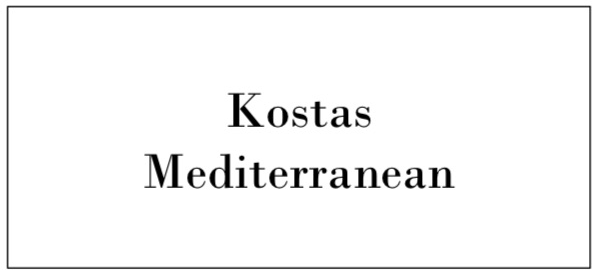
Kostas Mediterranean is a family-owned Greek restaurant located in North Vancouver. Our passion for bringing the authentic flavors of Greece to the local community has been the driving force behind our establishment. We take pride in offering a warm and welcoming atmosphere where guests can experience the true essence of Greek hospitality. Our journey began with Kostas, whose culinary skills and love for Greek cuisine inspired the creation of the restaurant. With a desire to share his family recipes and traditions, Kostas set out to create a dining experience that captures the spirit of Greece. The result is a menu that showcases a delightful blend of traditional and modern Greek dishes prepared with the finest and freshest ingredients.